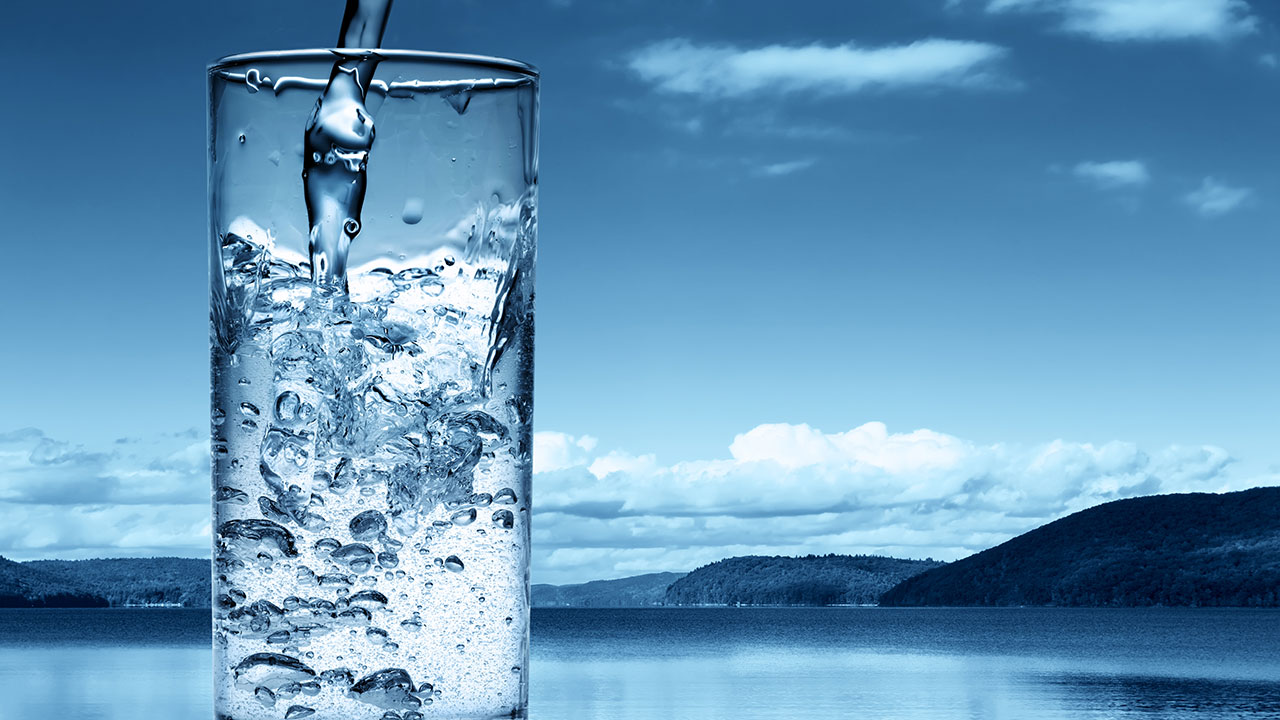Drinking a healthy amount of water is vital to our health.
The human body is anywhere from 55%-75% water, depending on our size. Even the organs are mainly made up of water:
- Muscle = 75% water
- Brain = 90% water
- Bone = 22% water
- Blood = 83% water
Functions of water in the body:
- Transports nutrients and oxygen into cells
- Moisturizes the air in lungs
- Helps with metabolism
- Protects vital organs
- Helps our organs absorb nutrients better
- Regulates body temperature
- Detoxifies
- Protects and moisturizes our joints
Every cell in our body needs water. For example, if the brain consists of 90% water and you don’t have enough supply of water your brain cannot function well. You will get a headache or a migraine. Therefore, the next time you feel fatigue or a headache it may be a sign of dehydration. Drink up!
Harmful effects of dehydration:
- Tiredness
- Migraine
- Constipation
- Muscle cramps
- Irregular blood pressure
- Kidney problems
- Dry skin
- 20% dehydration = risk of death
Symptoms of dehydration:
- Dark urine
- Dry skin
- Thirst
- Hunger
- Fatique
Benefits of drinking water:
- Weight loss – flushes out the by-products of fat breakdown, reduces hunger, appetite suppressant, and zero calories.
- Natural headache remedy – dehydration is the most common source of headaches.
- Look younger with healthier skin – replenishes skin tissues, moisturizes skin and increases skin elasticity.
- Better productivity at work – your brain is most made up of water. Drinking water helps you think better, stay alert and improves concentration.
- Better exercise – regulates body temperature so you will feel more energetic. It also helps fuel your muscles.
- Helps with digestion and constipation – water raises your metabolism because it helps with digestion.
- Less cramps and sprains – water keeps your joints and muscles lubricated.
- Feel healthy and less likely to get sick – water helps fight against flu and other ailments like kidney stones and heart attack.
- Relieves fatigue – water is used by the body to help flush out toxins and waste products from the body. If your body lacks water, your heart, for instance, needs to work harder to pump the oxygenated blood to all cells.
- Improved mood – when your body feels good, you feel good.
How much water should you drink?
How much water to drink per day depends on factors such as your health condition, your activity level, climatic conditions, physical size, your weight and your environment. You lose quite a bit of water through sweating, exhaling and urinating.
While it is generally recommended that you consume 8 glasses a day, a better estimation is to drink at least half of your body weight (in pounds) in ounces of water. For example: 160 ÷ 2 = 80 (amount of water to drink in ounces each day).
Tips for drinking water
- Spread the water thought out the day.
- Drink 1 cup of water 30 minutes before exercise, 1 cup every 30 minutes during exercise and 1 cup after exercise.
- Drink a glass of water first thing in the morning.
- Infuse your water with fruit and fresh herbs.
- Carry a bottle of water with a measurement.
If you would like more help with your wellness goals, e-mail kim@livingwell-hfc.com for a free assessment to get you started.

